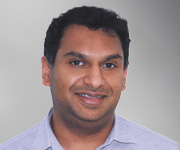DOCTORS in Australia spend a lot of time and effort getting to where they are.
In the first of a two-part feature series in the latest issue of the MJA, the Journal’s Careers editor Sophie McNamara writes that doctors often take more than 15 years to emerge fully trained in their chosen field.
Fewer students now start their medical studies fresh from school, and the time spent in training is increasing, where university-based course work is blended with a long stretch of clinical apprenticeship, and with frequent requirements for a research component.
For surgeons and proceduralists, the acquisition and maintenance of proficiency in manual skills makes the training period even longer.
Consequently, the productive clinical life of a doctor is likely to be shortened and changed in ways not considered when reforms that lengthened training programs were introduced.
Medical education is expensive and surely society has a right to expect a working career of sufficient length as a return on this investment.
Medical students and doctors-in-training are the most affected by this issue, particularly with the recent growth in the number of medical schools, many of which require graduate entry.
After at least 6‒7 years of education, they are acutely aware of the long hours and years spent in work, training, research and study that jostle with personal obligations around relationships and family.
Increasing numbers of new doctors compete for limited training places that are constrained by university, college and health system resources.
Many doctors, such as those described by McNamara, recall an unrelentingly tough grind over many years, including often dispiriting work as unaccredited “service registrars”. The temptation to move to the private system and financially make up for lost time is too great for some, with major implications for the public system.
Other countries are also grappling with these issues.
It has been estimated that medical training time in the US could be cut by 30% without diminishing skills or knowledge. But this requires radical rethinking: less generalist training and greater emphasis on providing volume of experience for new clinicians, to create specialists working in a clinical care team. Research training would be reserved for the academically minded.
In the Australian context, graduate programs could be trimmed by making the biomedical sciences compulsory prerequisites for admission and allowing specialist streaming within the primary medical degree, to shorten postgraduate training times.
What of the older doctor at the other end of the career trajectory, whose prized experience inevitably becomes overshadowed by cognitive, motor and sensory difficulties? In this week’s MJA, authors argue that ageing intensivists should not mandatorily retire, but instead refocus — on mentoring, teaching and administration, with working hours and responsibilities suited to their abilities.
In a Perspectives article, the author makes similar arguments for the older surgeon, citing the Royal Australasian College of Surgeons’ activities in this area, and raises the possibility of regular competency assessment.
Could age-related decline in manual proficiency be one of the reasons that surgeons older than 50 years (seemingly at the top of their game) are the most likely to be sued (Avant Surgeon 2011; (7): 4-5)?
Perhaps advances in robotic surgery, discussed in the same issue of the MJA, will provide new opportunities for surgeons with waning dexterity.
There is plenty to consider here and not much time to do so.
Increasing longevity and increasing numbers of medical school graduates will put pressure on both ends of the medical career, potentially resulting in a generation of unhappy and embittered younger doctors, and misvalued and inappropriately purposed practitioners of advancing years.
If we are to have a well trained, well adjusted workforce of doctors of all ages, we need to consider shortening and revitalising medical training, and expanding opportunities for older doctors to remain productive.
It has always been accepted that making a good doctor, like good red wine, requires the best ingredients, skill and time.
But even the best wine will pass its peak if left too long.
Dr Astika Kappagoda is deputy editor of the MJA.
This article is reproduced from the MJA with permission.
Posted 7 May 2012

 more_vert
more_vert